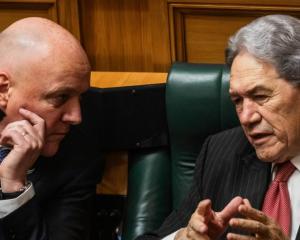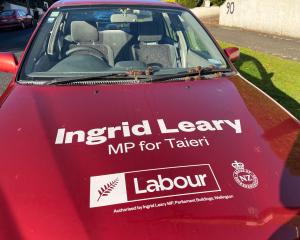
The incoming prime minister has already secured the votes he needs for a majority in Parliament.
The ACT Party yesterday pledged support on confidence and supply, adding its five votes to National's 59 for a total of 64 in the 122-member Parliament.
National could rule with that alone but Mr Key wants his government to be as broad-based as possible and is bringing in United Future leader Peter Dunne and the Maori Party, which won five seats in the election.
With those two signed up, Mr Key would have an overwhelming 70 votes in Parliament against the combined opposition forces of 52 held by Labour, the Greens and Jim Anderton.
National is not going to form a coalition government with ACT. The party's leader, Rodney Hide, will be given a ministerial position but it will be outside cabinet.
Mr Dunne will also be given a portfolio and will be a minister outside cabinet.
Those arrangements are the same as Labour worked out with Winston Peters and Mr Dunne after the 2005 election, and they allow the minor parties latitude to criticise the Government.
Mr Key will today meet Maori Party co-leaders Pita Sharples and Tariana Turia and he is expected to offer them the same sort of deal.
Dr Sharples has said he wants a ministerial role but Ms Turia might not because she has said she will retire from politics at the next election.
Mr Key still has to tidy up the arrangements with Mr Hide and Mr Dunne and further meetings are scheduled.
Mr Hide said before yesterday's meeting his party wanted the emissions trading scheme scrapped and much tougher law and order legislation put through Parliament.
Those issues are still being negotiated.
The crucial element of the support agreements Mr Key is working on is that the minor parties will vote with National on confidence and supply.
Confidence votes demonstrate a government's ability to prove that Parliament has confidence in it, and apply to budget legislation.
Supply votes are routine and authorise the Treasury to release money for the public service. If a supply vote was lost, the public service would cease functioning and the government would have to resign.
If it lost a confidence vote it would also have to resign, because it would not have been able to pass essential legislation like the budget.
Mr Key wants to form his government as quickly as possible so he can start working on ways to deal with the deteriorating economic situation.
He has also said he would like to be sworn in on Monday so he could leave on Tuesday to attend the Apec summit meeting in Peru.












